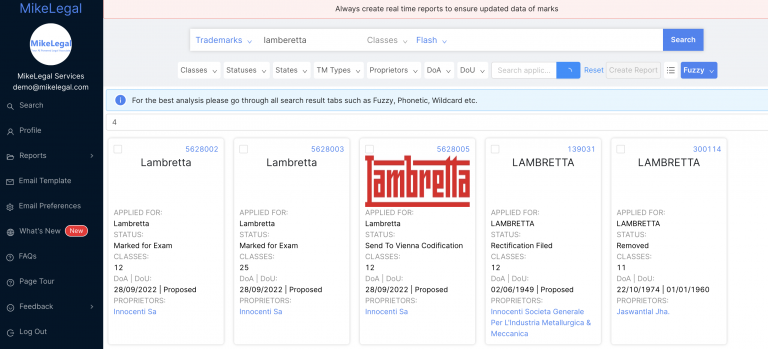Can You Protect IP of A Cricket Game Format? Courts Say, Not Really in The Case of Samir Kasal v/s Prashant Mehta and Ors, 2022
An application was filed by Samir Kasal (Plaintiff) and claimed that the tournament – International Cricket League was his brainchild and he had discussed it with Prashant Mehta (Defendant), who started the league, with other defendants.
Facts:
The Plaintiff conceptualized an International Cricket League which had novel features, such as two teams, namely “Asia XI” and “World XI” made up of world cricket legends, who are famous and retired cricket players would play Test format of T20 cricket with two innings of 10 overs each for each of the teams. The idea was to stage these tournaments in those countries which were non-cricket playing countries but had a large number of Indians living there and whose interest in cricket could be exploited.
The Plaintiff started building on the concept with Defendants, and began a correspondence with the requisite authorities and people to be involved. The format and information about the league were provided to the Defendant number 2 in a strictly confidential manner. There was a consensus between Plaintiff and Defendants at this stage to form a company, which was done in June 2018. The Plaintiff and Defendant worked on developing the concept but no matches could be held due to the ongoing pandemic in 2020 and 2021.
The Plaintiff came to know from the media that the Defendants were planning to organize “Legends League Cricket” instead of “Legends Premier League” that was agreed upon among all the parties earlier. The Plaintiff claimed that the Defendants misappropriated the idea that the plaintiff came up with which can be considered as a clear breach of confidentiality on part of the defendants.
The issue before the court was whether the Plaintiff could claim copyright arising out of his “work” and if he could claim breach of confidentiality on part of the Defendants.
So now in the present case the Plaintiff would have to prove a prima facie case in its favor. The “balance of convenience” as well as proof of an “irreparable loss and injury” would have to be in the Plaintiff’s favor.
As per Section 2(y) of Copyright Act, 1957, work means any of the following works namely:
- A literary, dramatic, musical or artistic work;
- A cinematograph film;
- A sound recording
The concept claimed by the Plaintiff, as his original idea, does not fall in any of these definitions. Thoughts, without being expressed in a material form, print or writing, would not constitute a “literary work”. The court viewed and concluded that parts of the concept already existed in the public domain for a long time and could not be considered as original ideas of the Plaintiff. The court said that the Plaintiff could not claim exclusive rights over ideas such as naming the teams using the words such as “Asia” and “World” or restrict the players from participating in the defendant’s league.
The court relied on the judgment of R.G. Anand v/s Delux films, in this the court stated that all the games of cricket would have some of the elements common or derived from the same concept so the burden would be on the Plaintiff to prove that his idea had some novelty which could be protected but the plaintiff failed to do so. As the Plaintiff’s ideas already existed and were adopted from one form or other.
The Plaintiff and Defendant number 1 had not prepared a proper document that could give rise to contractual obligations on part of the other defendants or third parties. So it was concluded that there was no existence of the formation of a quasi-contract.
The court opined that the obligation of confidentiality could not continue indefinitely. It would further depend on the nature of the information to be kept confidential. The information related to organizing a league as per Plaintiff’s concept cannot stop Defendant number 2 from holding league matches forever, especially when it was observed by the court that he was continuously involved in management of an IPL team. The Plaintiff was also at the fault that he failed to contact defendant number 2 between 2018 and 2020 to proceed with the proposal. It was also observed by the court that the Plaintiff was unable to explain the delay in approaching the court.
The court stated that no one can claim copyright on the game of cricket and there can be no copyright on the evolution of the game from five-day test matches to the recent format of T-20 cricket either. The court dismissed the Plaintiff’s claim for monetary loss as the damage suffered by the Plaintiff would still be insignificant as compared to the Defendant if an interim injunction was granted against them. So he dismissed the applications filed by the Plaintiff. The court directed the league organizers to maintain clear accounts of their earnings and expenditure with respect to matches and file the same before the Court within one month after the completion of the tournament.
This case study has been written by Kinnari Bhatt during her internship with MikeLegal
Video clip source: Giphy
References:
- https://www.barandbench.com/news/litigation/no-one-can-claim-copyright-over-cricket-delhi-high-court-refuses-to-stay-legends-league-cricket
- https://www.newindianexpress.com/cities/delhi/2022/jan/21/court-refuses-to-staylegends-league-cricket-2409515.html
- https://images.assettype.com/barandbench/2022-01/d2b95dd1-952a-46ee-a22e-2c2bb5025b24/Samir_Kasal_v_Prashant_Mehta_and_Ors.pdf






